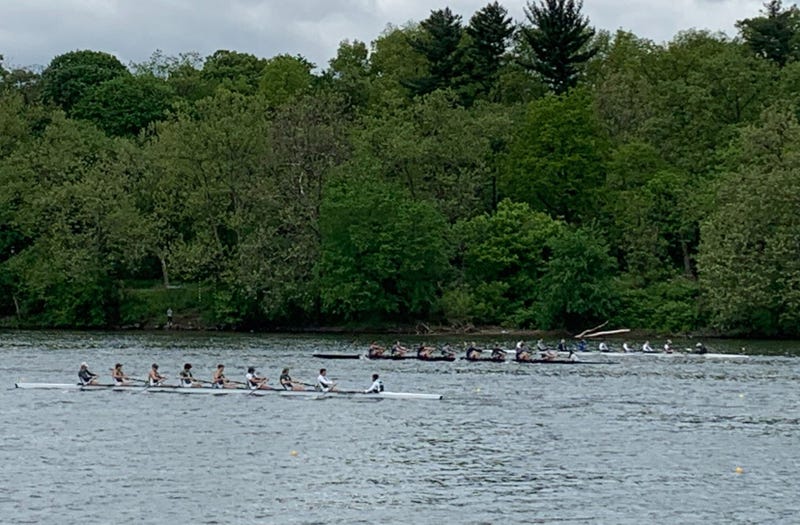
PHILADELPHIA (KYW Newsradio) — The Dad Vail Regatta — North America's largest collegiate rowing competition — resumed along the Schuylkill River following a year's hiatus due to COVID-19. However, it's a scaled-down event this year, with fewer teams and no spectators.
For athletes and organizers, it's been a difficult year. Lanie O'Neill said being an athlete through the COVID-19 pandemic has been challenging.
"You’re always used to having the next thing that's like three weeks, a month out and there was nothing," she said. "You were training with the hopes that one day you'll get back to doing something. So... here we are."
Perry Hamilton, general manager of the regatta, described this year's competition as subdued.
"We normally get 115 colleges or more, up to 125, and this year we probably have about 44," he said.
But coming off a pandemic year, Hamilton is thankful to be able to have competition at all. He viewed this year's regatta as a stepping stone to so-called "normalcy."
"If everything goes well, we're hoping next year will have more than double the amount of boats, more than double the amount of athletes and coaches," he said, adding the draw of the event is that any college can enter.
"It's a little bit like the spirit of Rocky," he described. "Small college programs that aren't that well-funded get to take on Princeton, a big, well-funded, well-organized, historic rowing crew. Maybe they'll beat them."
But for some teams, there's no going back to normal. What's more, being well-funded doesn't guarantee success — or longevity. Eric Gehrke is head coach of George Washington men's rowing, a team that's been competing since 1956.
"We are a program that actually is being cut at the end of this year," he said. "We're one of the COVID-cut programs, so this is our last shake or our last hurrah."
When asked how he copes with that knowledge, Gehrke replied, "Train. Try to buckle down and actually be even more intense than we've ever been."
Team member John Kneis of Blue Bell, said he gained some perspective from the pandemic.
"One thing I realized last year is that you can't take your strokes for granted," he said. "You never know when your last one is going to happen."

